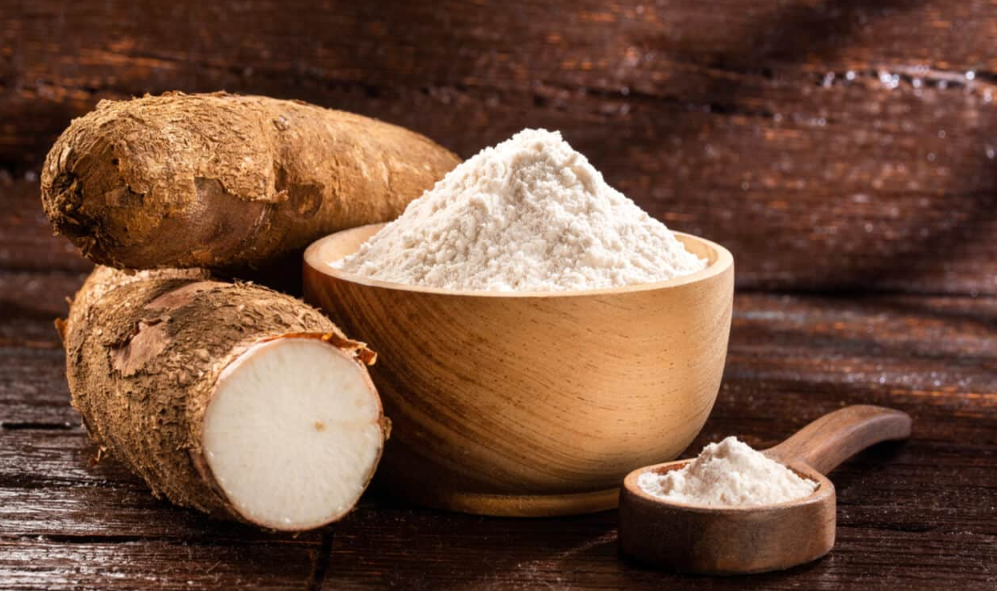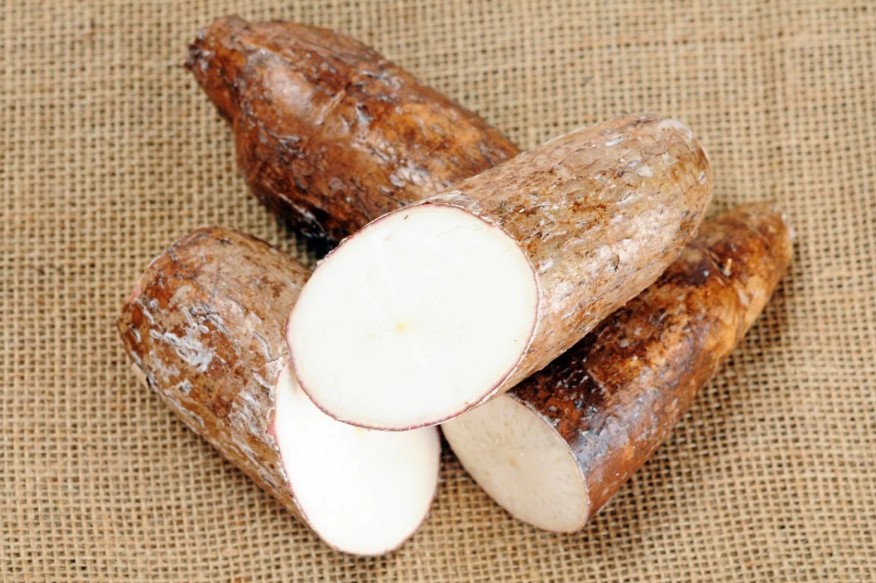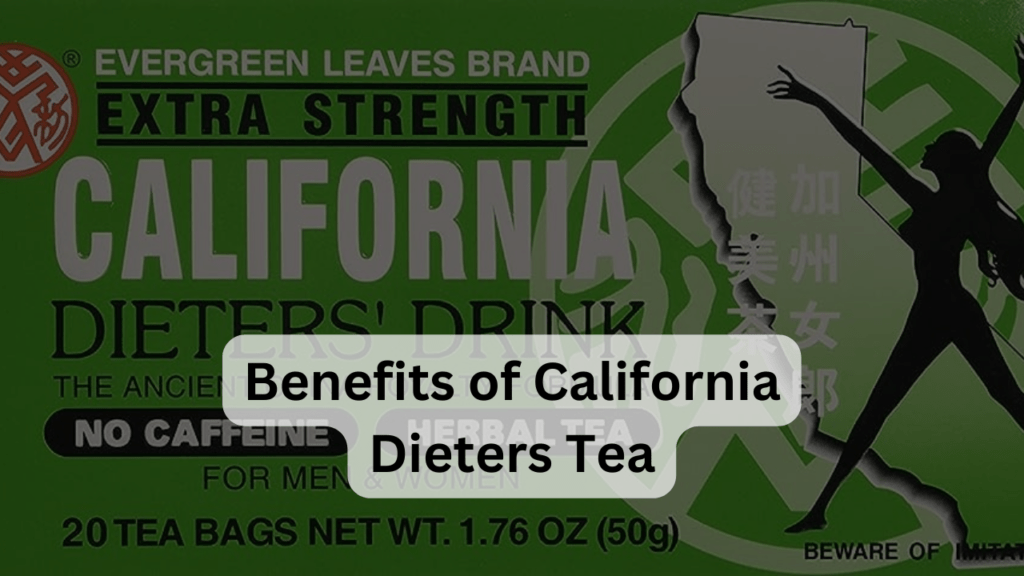Cassava, a starchy root vegetable native to South America, has become a staple food for millions across the globe. Its versatility, affordability, and resilience in harsh climates make it a dietary cornerstone in many regions.
But with rising awareness of chronic health conditions like high blood pressure, a common question arises: is cassava good for high blood pressure?
This article delves into the complex relationship between cassava and hypertension, exploring its nutritional profile, potential benefits, and drawbacks, and how it can fit into a balanced diet for individuals managing blood pressure.
Understanding High Blood Pressure
Before diving into cassava’s specifics, let’s establish a common ground on high blood pressure (hypertension). This condition occurs when the force exerted by blood against your artery walls is consistently elevated, putting undue strain on your cardiovascular system.
Uncontrolled hypertension can lead to serious complications like heart disease, stroke, and kidney damage.
Cassava’s Nutritional Profile
Cassava boasts a unique blend of nutrients, with its primary focus on carbohydrates. A single serving (135 grams) of cooked cassava provides:
- Calories: 160
- Carbohydrates: 36 grams (including 4 grams of fiber)
- Protein: 1.5 grams
- Fat: 0.3 grams
- Potassium: 558 mg (16% of Daily Value)
- Vitamin C: 20% of Daily Value
- Magnesium: 5% of Daily Value
- Copper: 12% of Daily Value
Cassava’s Potential Benefits for Blood Pressure

Several key nutrients in cassava hold promise for managing blood pressure:
- Potassium: This mineral acts as a vasodilator, relaxing blood vessels and promoting smoother blood flow. Cassava’s high potassium content (one serving exceeding 15% of the daily recommended intake) can potentially contribute to lowering blood pressure.
- Fiber: Dietary fiber, particularly soluble fiber, plays a crucial role in gut health and overall well-being. Studies suggest it may help lower blood pressure by reducing cholesterol levels and improving insulin sensitivity. Cassava contains a moderate amount of fiber, offering some potential benefits in this regard.
- Resistant Starch: A specific type of fiber found in cassava, resistant starch, resists digestion in the small intestine and ferments in the colon, feeding beneficial gut bacteria. This fermentation process produces short-chain fatty acids, which have anti-inflammatory properties and may contribute to improved blood pressure control.
Potential Drawbacks to Consider
While cassava offers certain benefits, it’s crucial to acknowledge potential drawbacks:
- Processing Methods: Cassava processing methods can significantly impact its nutritional value. Products like tapioca pearls or cassava flour often undergo refining, stripping away fiber and essential nutrients. Opting for whole, unprocessed cassava is key to reaping its potential health benefits.
- Glycemic Index: Cassava has a relatively high glycemic index (GI), meaning it can cause a rapid rise in blood sugar levels. This can be detrimental for individuals with diabetes or prediabetes, potentially impacting blood pressure control. Moderation and pairing cassava with other foods that slow down digestion are essential.
- Antinutrient Concerns: Cassava, particularly raw or improperly prepared, contains antinutrients like cyanogenic glycosides. These can release cyanide when consumed, posing potential health risks. Thorough cooking methods like boiling, frying, or roasting effectively neutralize these antinutrients, making cassava safe for consumption.
Cassava is a Blood Pressure-Friendly Diet
Can cassava be part of a healthy diet for individuals managing high blood pressure? Absolutely! Here are some tips for incorporating it responsibly:
- Focus on whole, unprocessed cassava: Choose fresh cassava root or minimally processed products like cassava flour. Avoid refined cassava products like tapioca pearls, which offer limited nutritional value.
- Pair cassava with complementary foods: Combine cassava with protein sources like lean meat, fish, or legumes, and fiber-rich vegetables to slow down digestion and prevent blood sugar spikes.
- Portion control is key: Be mindful of serving sizes. While cassava is a nutritious food, overconsumption can negate its potential benefits and contribute to weight gain, further impacting blood pressure.
- Cooking methods matter: Opt for healthy cooking methods like boiling, roasting, or baking to retain nutrients and neutralize antinutrients. Avoid deep-frying, which adds unhealthy fats and calories.
- Consult with a healthcare professional: If you have concerns about incorporating cassava into your diet for high blood pressure management, discuss it with your doctor or a registered dietitian. They can personalize your dietary recommendations based on your individual needs and health conditions.
Is Cassava Good for High Blood Pressure?
Remember, managing high blood pressure requires a multi-pronged approach. While cassava can be a valuable dietary element within a healthy lifestyle, it’s not a magic bullet. Here are some additional strategies to consider for holistic blood pressure control:
Lifestyle Modifications
- Regular Physical Activity: Aim for at least 150 minutes of moderate-intensity exercise or 75 minutes of vigorous-intensity exercise per week. Physical activity strengthens your heart, improves blood flow, and aids in weight management, all of which contribute to lower blood pressure.

Image Credit: Everyday Health - Stress Management: Chronic stress can elevate blood pressure. Practice relaxation techniques like yoga, meditation, deep breathing, or spending time in nature to manage stress and promote overall well-being.
- Sodium Reduction: Limit your intake of processed foods and add salt, both major contributors to high blood pressure. Opt for fresh, whole foods and natural herbs and spices to season your meals.
- Alcohol Moderation: Excessive alcohol consumption can raise blood pressure. Stick to moderate alcohol intake, is defined as one drink per day for women and two drinks per day for men.
- Smoking Cessation: Smoking significantly increases the risk of heart disease and stroke, both of which are closely linked to high blood pressure. Quitting smoking is one of the most impactful steps you can take for your cardiovascular health.
READ: How to Get Rid of High Blood Pressure in Bitlife?
Additional Dietary Tips
- Increase Fruits and Vegetables: Aim for at least five servings of fruits and vegetables per day. These are rich in antioxidants, vitamins, minerals, and fiber, all of which contribute to good blood pressure control.
- Choose Healthy Fats: Include healthy fats like avocado, nuts, seeds, and olive oil in your diet. These fats can help lower LDL (bad) cholesterol and raise HDL (good) cholesterol, both of which benefit blood pressure.
- Limit Sugar and Refined Carbohydrates: Excessive sugar and refined carbohydrates can lead to weight gain and insulin resistance, both risk factors for high blood pressure. Opt for whole grains, legumes, and starchy vegetables instead.
- Stay Hydrated: Dehydration can temporarily elevate blood pressure. Drink plenty of water throughout the day to stay hydrated and support optimal blood flow.
Remember, consistency is key. Implementing these lifestyle and dietary changes may require some initial effort, but the long-term benefits for your health and well-being are significant.
Working with Healthcare Professionals
Managing high blood pressure often involves collaboration with healthcare professionals. Your doctor can:

- Monitor your blood pressure regularly.
- Identify any underlying medical conditions contributing to high blood pressure.
- Prescribe medication if necessary.
- Provide personalized guidance on lifestyle and dietary changes.
Don’t hesitate to seek professional support if you need help managing your blood pressure. With dedication to a healthy lifestyle and proper medical guidance, you can effectively control your blood pressure and live a long, healthy life.
Conclusion
Cassava can be a valuable component of a blood pressure-friendly diet when consumed responsibly. Its high potassium content, presence of fiber, and potential for resistant starch formation offer promising benefits for blood pressure control.
However, it’s crucial to acknowledge potential drawbacks like processing methods, glycemic index, and antinutrient concerns. Moderation, mindful preparation, and a focus on whole, unprocessed forms are key to maximizing cassava’s potential benefits while minimizing risks.
Remember, managing high blood pressure requires a holistic approach. Implementing lifestyle modifications like regular exercise, stress management, sodium reduction, and smoking cessation, alongside dietary changes like increasing fruits and vegetables, choosing healthy fats, and limiting sugar and refined carbohydrates, can significantly impact your blood pressure control.
Working collaboratively with healthcare professionals ensures proper monitoring, identification of underlying conditions, and personalized guidance for optimal health outcomes.
By incorporating cassava into a balanced, healthy lifestyle and adopting a comprehensive approach to blood pressure management, you can effectively take charge of your health and well-being.
Resources and References
- American Heart Association: https://www.heart.org/
- National Institutes of Health: https://www.nih.gov/
- Centers for Disease Control and Prevention: https://www.cdc.gov/
- Mayo Clinic: https://www.mayoclinic.org/
- World Health Organization: https://www.who.int/
By following these tips and incorporating cassava into a balanced, healthy diet, you can take charge of your blood pressure and support your overall well-being. Remember, consistency and a collaborative approach are key to achieving and maintaining optimal health.
FAQs – Cassava & High Blood Pressure
Is cassava good for lowering blood pressure?
Cassava can be a valuable part of a blood pressure-friendly diet due to its high potassium content, which helps relax blood vessels. However, moderation is key, as cassava also has a high glycemic index. Consult your doctor or a registered dietitian for personalized advice.
How much cassava is safe to eat if I have high blood pressure?
Stick to moderate portions, ideally around 1/2 cup of cooked cassava per serving. Focus on whole, unprocessed forms and pair it with protein and fiber-rich foods to slow down digestion and prevent blood sugar spikes.
Are there any risks associated with eating cassava for blood pressure?
Overconsumption, improper preparation, and processing methods can be drawbacks. Raw or poorly cooked cassava contains antinutrients, while processed products often lack fiber and essential nutrients. Moderation and mindful preparation are key.
Can I eat cassava if I have diabetes and high blood pressure?
Consult your doctor first. Due to its glycemic index, cassava may impact blood sugar control. Be mindful of portion sizes and pair cassava with protein and fiber to manage blood sugar spikes.
Do other starchy vegetables offer similar benefits for blood pressure?
Yes! Sweet potatoes, potatoes, and plantains are also rich in potassium and fiber, potentially aiding blood pressure control. Consider incorporating them into your diet for variety and additional nutrients.
What other dietary changes can help lower blood pressure besides cassava?
Focus on a balanced diet rich in fruits, vegetables, whole grains, and lean protein. Limit processed foods, added sugars, unhealthy fats, and sodium. Regular exercise, stress management, and adequate sleep are also crucial for optimal blood pressure control.



